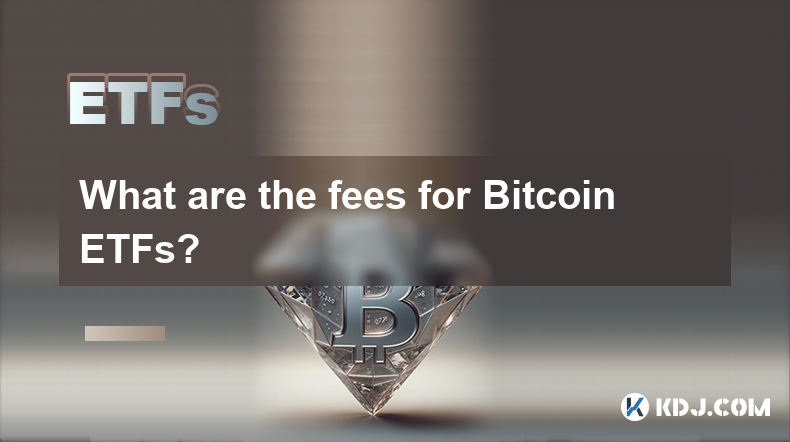-
 Bitcoin
Bitcoin $84,888.8263
-0.23% -
 Ethereum
Ethereum $1,589.1360
-1.54% -
 Tether USDt
Tether USDt $0.9998
0.00% -
 XRP
XRP $2.0854
0.10% -
 BNB
BNB $590.3962
-0.13% -
 Solana
Solana $137.6361
-0.67% -
 USDC
USDC $0.9999
-0.01% -
 TRON
TRON $0.2462
1.43% -
 Dogecoin
Dogecoin $0.1558
-0.82% -
 Cardano
Cardano $0.6218
-0.90% -
 Chainlink
Chainlink $13.4904
4.23% -
 UNUS SED LEO
UNUS SED LEO $9.3296
0.29% -
 Avalanche
Avalanche $19.6080
-2.27% -
 Stellar
Stellar $0.2447
-1.24% -
 Toncoin
Toncoin $3.0006
1.49% -
 Shiba Inu
Shiba Inu $0.0...01249
1.79% -
 Hedera
Hedera $0.1675
0.75% -
 Sui
Sui $2.1188
-1.81% -
 Bitcoin Cash
Bitcoin Cash $337.1084
0.88% -
 Polkadot
Polkadot $3.9000
2.93% -
 Hyperliquid
Hyperliquid $17.7254
-0.71% -
 Litecoin
Litecoin $78.1269
3.13% -
 Dai
Dai $1.0000
0.01% -
 Bitget Token
Bitget Token $4.3822
-3.03% -
 Ethena USDe
Ethena USDe $0.9994
0.02% -
 Pi
Pi $0.6447
0.00% -
 Monero
Monero $215.8244
2.10% -
 Uniswap
Uniswap $5.3014
-0.21% -
 Pepe
Pepe $0.0...07590
2.96% -
 Aptos
Aptos $5.0592
2.99%
What are the fees for Bitcoin ETFs?
When investing in Bitcoin ETFs, it's crucial to understand the impact of fees (expense ratio, trading fees, spread, and others) on potential returns and make informed decisions to maximize investments.
Jan 06, 2025 at 01:37 am

Key Points:
- Bitcoin ETFs offer exposure to Bitcoin's price movements without the need for direct ownership.
- ETFs typically charge various fees, which impact investor returns.
- Different ETFs may have different fee structures, so it's crucial to compare options and select the most suitable one.
- Understanding ETF fees can help investors make informed decisions and maximize their investments.
Bitcoin ETF Fees
1. Expense Ratio:
- The expense ratio is an annual fee charged by the ETF's management company to cover operating expenses, such as fund management, marketing, and administration.
- Expense ratios can vary among ETFs. Typically, larger ETFs with more assets under management (AUM) have lower expense ratios than smaller ETFs.
- The expense ratio is expressed as a percentage of the fund's AUM. For example, an expense ratio of 0.5% means that for every $1,000 invested in the ETF, $5 will be deducted annually for expenses.
2. Trading Fees:
- Trading fees are brokerage commissions charged when buying or selling ETF shares.
- These fees may vary depending on the brokerage firm used and the size of the trade.
- Some brokers offer commission-free trading for ETFs, while others charge a flat fee or a percentage-based fee. It's essential to compare trading fees before selecting a brokerage platform.
3. Spread:
- The spread is the difference between the ETF's bid and ask price.
- When buying an ETF, investors pay the ask price, which is higher than the NAV. When selling an ETF, investors receive the bid price, which is lower than the NAV.
- The spread represents the market maker's profit for facilitating the trade. The narrower the spread, the more efficient the market and the lower the effective cost of trading.
4. Other Fees:
- Some ETFs may also charge additional fees, such as redemption fees or transaction fees.
- Redemption fees are charged if investors withdraw their funds from the ETF within a certain period, typically within the first year of investment.
- Transaction fees are charged when investors convert one ETF to another within the same fund family.
5. Impact of Fees on Returns:
- ETF fees can impact investment returns over time.
- Higher fees can reduce potential returns, while lower fees can enhance returns.
- When choosing an ETF, investors should consider the cumulative effect of fees over the investment period.
FAQs:
Q: Do all Bitcoin ETFs charge fees?
A: Yes, all Bitcoin ETFs charge some fees, such as the expense ratio and trading fees.
Q: How do I compare ETF fees?
A: To compare ETF fees, investors should analyze expense ratios, trading fees, spreads, and any additional fees. It's recommended to use a fee calculator or comparison tool to determine the effective cost of investing in different ETFs.
Q: Can I reduce the fees associated with Bitcoin ETFs?
A: Several factors can help reduce fees, such as choosing ETFs with low expense ratios, using brokers that offer commission-free trading, and minimizing trading frequency.
Disclaimer:info@kdj.com
The information provided is not trading advice. kdj.com does not assume any responsibility for any investments made based on the information provided in this article. Cryptocurrencies are highly volatile and it is highly recommended that you invest with caution after thorough research!
If you believe that the content used on this website infringes your copyright, please contact us immediately (info@kdj.com) and we will delete it promptly.
- Polkadot (DOT) price gains traction as it forms a double falling wedge pattern. This formation...
- 2025-04-21 04:25:19
- title: Hyperliquid (HYPE) Dominates the Decentralized Perpetual Futures Trading Market, Capturing Nearly 80% of DEX Volume
- 2025-04-21 04:25:19
- Sleep Token Reveal Even in Arcadia's Full Tracklisting
- 2025-04-21 04:15:12
- Rexas Finance (RXS) Emerges as the Leading Topic in Crypto Circles
- 2025-04-21 04:15:12
- 9 Crypto Unlocks to Watch in the Next Days
- 2025-04-21 04:10:14
- The cryptocurrency market remains subdued at the moment, with no notable catalysts present to push prices in either direction.
- 2025-04-21 04:10:14
Related knowledge

What role does SEC play in Bitcoin ETF approval?
Feb 25,2025 at 06:48am
Key Points:SEC's Role in Bitcoin ETF Approval ProcessHistorical Efforts to Establish a Bitcoin ETFSEC's Criteria for Bitcoin ETF ApprovalPotential Impact of a Bitcoin ETF on the Cryptocurrency MarketTimeline and Outlook for Bitcoin ETF ApprovalArticle:SEC Play in Bitcoin ETF ApprovalThe United States Securities and Exchange Commission (SEC) plays a crit...

Who is eligible to issue Bitcoin ETFs?
Feb 25,2025 at 11:13am
Key Points:Only regulated financial institutions with the necessary expertise and infrastructure are eligible to issue Bitcoin ETFs.The Securities and Exchange Commission (SEC) has not yet approved any spot Bitcoin ETFs, but has approved several futures-based ETFs.Applicants must meet stringent requirements, including having a strong track record and su...

What impact does Bitcoin ETF have on the market?
Feb 25,2025 at 11:37am
Key Points:Introduction to Bitcoin ETFs and their role in the cryptocurrency marketHistorical development and performance of Bitcoin ETFsPotential benefits of Bitcoin ETFs for investors and the marketRisks and limitations associated with Bitcoin ETFsRegulatory considerations and their impact on Bitcoin ETFsArticle:Introduction to Bitcoin ETFsBitcoin exc...

Which investors are Bitcoin ETFs suitable for?
Feb 27,2025 at 04:01pm
Key Points:Understanding Bitcoin ETFsBenefits of Bitcoin ETFsSuitability of Bitcoin ETFs for Different InvestorsAssessing Risk Tolerance and Investment GoalsConsidering Short-Term and Long-Term StrategiesExamining Tax ImplicationsSeeking Professional AdviceUnderstanding Bitcoin ETFsBitcoin exchange-traded funds (ETFs) are investment vehicles that track ...

What is the administrative expenses of Bitcoin ETFs?
Feb 26,2025 at 12:24am
Key Points:Administrative expenses are a crucial factor to consider when evaluating Bitcoin ETFs.These expenses can significantly impact the performance of the fund and ultimately the investor's returns.Understanding the various components of administrative expenses is essential for informed decision-making.Comparing administrative expenses across diffe...

What are the fees for purchasing Bitcoin ETFs?
Feb 27,2025 at 07:13pm
Key Points:Bitcoin exchange-traded funds (ETFs) are a cost-effective and regulated way to gain exposure to Bitcoin.Fees associated with Bitcoin ETF purchases vary depending on the platform, trading volume, and account type.It is essential to evaluate fee structures carefully to optimize investment returns.Fees Associated with Purchasing Bitcoin ETFs1. B...

What role does SEC play in Bitcoin ETF approval?
Feb 25,2025 at 06:48am
Key Points:SEC's Role in Bitcoin ETF Approval ProcessHistorical Efforts to Establish a Bitcoin ETFSEC's Criteria for Bitcoin ETF ApprovalPotential Impact of a Bitcoin ETF on the Cryptocurrency MarketTimeline and Outlook for Bitcoin ETF ApprovalArticle:SEC Play in Bitcoin ETF ApprovalThe United States Securities and Exchange Commission (SEC) plays a crit...

Who is eligible to issue Bitcoin ETFs?
Feb 25,2025 at 11:13am
Key Points:Only regulated financial institutions with the necessary expertise and infrastructure are eligible to issue Bitcoin ETFs.The Securities and Exchange Commission (SEC) has not yet approved any spot Bitcoin ETFs, but has approved several futures-based ETFs.Applicants must meet stringent requirements, including having a strong track record and su...

What impact does Bitcoin ETF have on the market?
Feb 25,2025 at 11:37am
Key Points:Introduction to Bitcoin ETFs and their role in the cryptocurrency marketHistorical development and performance of Bitcoin ETFsPotential benefits of Bitcoin ETFs for investors and the marketRisks and limitations associated with Bitcoin ETFsRegulatory considerations and their impact on Bitcoin ETFsArticle:Introduction to Bitcoin ETFsBitcoin exc...

Which investors are Bitcoin ETFs suitable for?
Feb 27,2025 at 04:01pm
Key Points:Understanding Bitcoin ETFsBenefits of Bitcoin ETFsSuitability of Bitcoin ETFs for Different InvestorsAssessing Risk Tolerance and Investment GoalsConsidering Short-Term and Long-Term StrategiesExamining Tax ImplicationsSeeking Professional AdviceUnderstanding Bitcoin ETFsBitcoin exchange-traded funds (ETFs) are investment vehicles that track ...

What is the administrative expenses of Bitcoin ETFs?
Feb 26,2025 at 12:24am
Key Points:Administrative expenses are a crucial factor to consider when evaluating Bitcoin ETFs.These expenses can significantly impact the performance of the fund and ultimately the investor's returns.Understanding the various components of administrative expenses is essential for informed decision-making.Comparing administrative expenses across diffe...

What are the fees for purchasing Bitcoin ETFs?
Feb 27,2025 at 07:13pm
Key Points:Bitcoin exchange-traded funds (ETFs) are a cost-effective and regulated way to gain exposure to Bitcoin.Fees associated with Bitcoin ETF purchases vary depending on the platform, trading volume, and account type.It is essential to evaluate fee structures carefully to optimize investment returns.Fees Associated with Purchasing Bitcoin ETFs1. B...
See all articles





















































































